Concerned first-time parents tend to worry about literally everything. This is only natural, because you want the best for your child, and that requires monitoring their input as well as their output to ensure that everything is going well and that your baby is happy and healthy.
Yes, this means that parents may find themselves wondering whether or not their child’s urine output is normal. While it can be tough to measure exactly, since they pee into diapers and no one wants to squeeze them to see how much comes out, there are other ways of monitoring their urine output, and Paperclip is here to help.
Sounds exciting, right? While it may not be at the top of your list of dinner topics, let’s discuss what a normal urine output should look like for your baby.
Why Check Your Child’s Urine Output?
While checking your child’s urine output may sound strange or even paranoid to someone who isn’t an overly concerned parent, there are many reasons behind wanting to monitor this type of output. For one, you want to ensure that your infant isn’t dehydrated. Unlike a toddler who can tell you that they’re thirsty, an infant can only cry, leaving you to try to figure out why they’re so upset.
In addition, you want to make sure that your baby’s kidneys and bladder are working properly. If there are any problems, you’ll catch them by keeping an eye on how much they pee. Of course, it helps if you know just how much their normal urine output should be.
Breastfeeding or Bottle Feeding
One reason why parents may be concerned about their baby’s urine output is if they’re breastfeeding, as that can make it tough to gauge just how much the baby is drinking. Bottle feeding, on the other hand, allows parents to measure this accurately, making it clear just how much they’re consuming.
As long as your baby drinks on a regular schedule, produces the right amount of wet diapers, and seems to be peeing every couple of hours (depending on the age of the child, of course), then there is nothing to really worry about – that is, unless you see the signs of a problem (We’ll go into more depth on this soon).
Normal Urine Output
Although every infant is different, there are some standards and averages to keep in mind here. This means that you’ll need to consider a few different things, such as keeping track of their wet diapers, while also considering things like their age and the weather, as those two things play the largest role in just how much your infant should be peeing.
Age Makes a Difference
In general, as a newborn grows throughout its first week of life, it will produce more wet diapers. Expect one during the first day, right after you gave birth, and then more as that week progresses. By day three, you’ll be dealing with between three and five wet diapers, and then between six and eight by day six. After this, the number will stay pretty steady, between six and eight from the end of the first week until your child is around eight months old, in which case the number will lower.
Keep in mind that as your child grows, their bladder does as well, so they will be able to hold more urine as time goes by and will produce fewer wet diapers. The good news is that as long as they remain in the average range, everything is fine.
Weather Matters
In addition to age, you also need to consider the weather. When it’s colder out, your baby will urinate more, as they don’t need the excess moisture to keep their bodies hydrated. As it begins to warm up, you’ll see the number of wet diapers drop, and when it’s very hot, they may pee only half as much as you’re used to. This isn’t really a cause for concern unless they’re showing other signs of dehydration, like having darker urine, crying a lot, and so on. It is definitely something to keep in mind when stocking your diaper bag, though.
Now, we’ll go into a bit more depth on these signs of dehydration because you really need to know what to look for since your baby will not be able to communicate this to you.
Signs of Dehydration
How can you tell if your child is dehydrated? Not producing enough wet diapers is definitely one telltale sign, but there are others, such as urine that’s dark yellow and very smelly. This is called concentrated urine, and it’s a clear sign of dehydration. Although it’s fine if you see this in a diaper every once in a while, if it happens quite often, then you need to call your baby’s pediatrician, as there might be a problem.
Other things to look for include very dry skin that doesn’t seem to have much moisture, as well as a baby that is upset and crying a lot. If you attempt to get them to drink more milk or formula and they resist, then calling your doctor is best because something else might be going on that requires some medical attention.
In addition, if your little nugget is dehydrated, their soft spot may be sunken in a bit, and they won’t produce a lot of tears when they cry. This is due to the fact that they don’t have the moisture required in their bodies to produce tears. Their mouth will also appear to be dry to the naked eye and will feel dry when you touch it. Additionally, their eyes may appear sunken in, their skin might look a bit wrinkly, and they will most likely sleep a bit more than usual.
All of these are signs that you need to get your baby to drink something right away and rehydrate their little body.
Symptoms of a Problem
Although standard dehydration happens now and then and usually isn’t a cause for concern, there are some additional things to keep an eye out for when your child appears to be dehydrated or isn’t producing the right amount of urine. Some symptoms to keep an eye out for include:
- blood in the diaper or bloody urine
- pain when urinating
- peeing too often
- pee that smells funny
All of these are signs that consulting your doctor immediately is best.
Blood on the Diaper or Bloody Urine
Right after your baby is born, you might see a little blood in their diaper. It appears more like a pink tinge than anything else, although it might outright look like a small amount of blood. In baby girls, this blood can be pseudo menstruation, which happens during their first few days. In boys, you might see a little red in their diapers if they’ve been circumcised.
However, if you see a lot of blood or it happens after the first couple of days, you’ll need to see a doctor as this is a sign that something is wrong. It could just be something simple, like diaper rash, but it’s always better to check with your pediatrician to make sure.
Obvious Pain When Urinating
Babies should not be in pain when they are urinating. If you see any obvious signs of pain or distress, like crying when they pee, doing whatever they can to avoid peeing, or wincing in pain while urinating, then your baby may have a urinary tract infection or a problem with their bladder or kidneys. These are signs indicating that a call to your pediatrician is necessary, as your baby should never suffer when they are urinating.
Peeing Too Much
Also, a baby that pees too much – one that goes through too many wet diapers each day – could have a medical issue. As with many of the other symptoms here, it could just be a urinary tract infection. However, it could be something else that is helping them make too much urine on a daily basis.
Urine that Smells Funny
Yes, your infant’s pee will smell unpleasant. That’s just a part of life—sorry! However, if their pee smells too much – or it stinks of something very unpleasant – then they may also have a urinary tract infection. A baby can get one of these infections fairly easily, as they wear a diaper, which can keep the bacteria very close to their urinary tract.
In Conclusion
Monitoring your child’s urine output, especially during their first few months of life, is one way to ensure that they are staying healthy. Understand just how many wet diapers they should be going through, as well as knowing the symptoms of a potential problem, like dehydration or a urinary tract infection, is key.
Remember that although they may try, your infant can’t really tell you what’s wrong, other than by crying, so you’ll need to keep an eye out for any issues that they might be having. So, just keep a watchful eye on those diapers (which you’re hopefully storing in a stylish diaper bag), and your baby is sure to be in good hands!
Sources:
What are some of the basics of infant health? | NICHD
Wet Diapers and Newborn Urine Output Medically reviewed by Meredith Shur, MD | Very Well Family
Baby's First Days: Bowel Movements & Urination | Healthy Children
Popular Articles
Help! My Silicone Tastes Like Soap!
Back-to-Preschool, the Eco-Friendly Way: 7 Simple Swaps for Greener Mornings
If you're looking to make mornings smoother and more sustainable, here are 7 simple, eco-friendly swaps perfect for preschoolers and the grownups who love them.
Read More

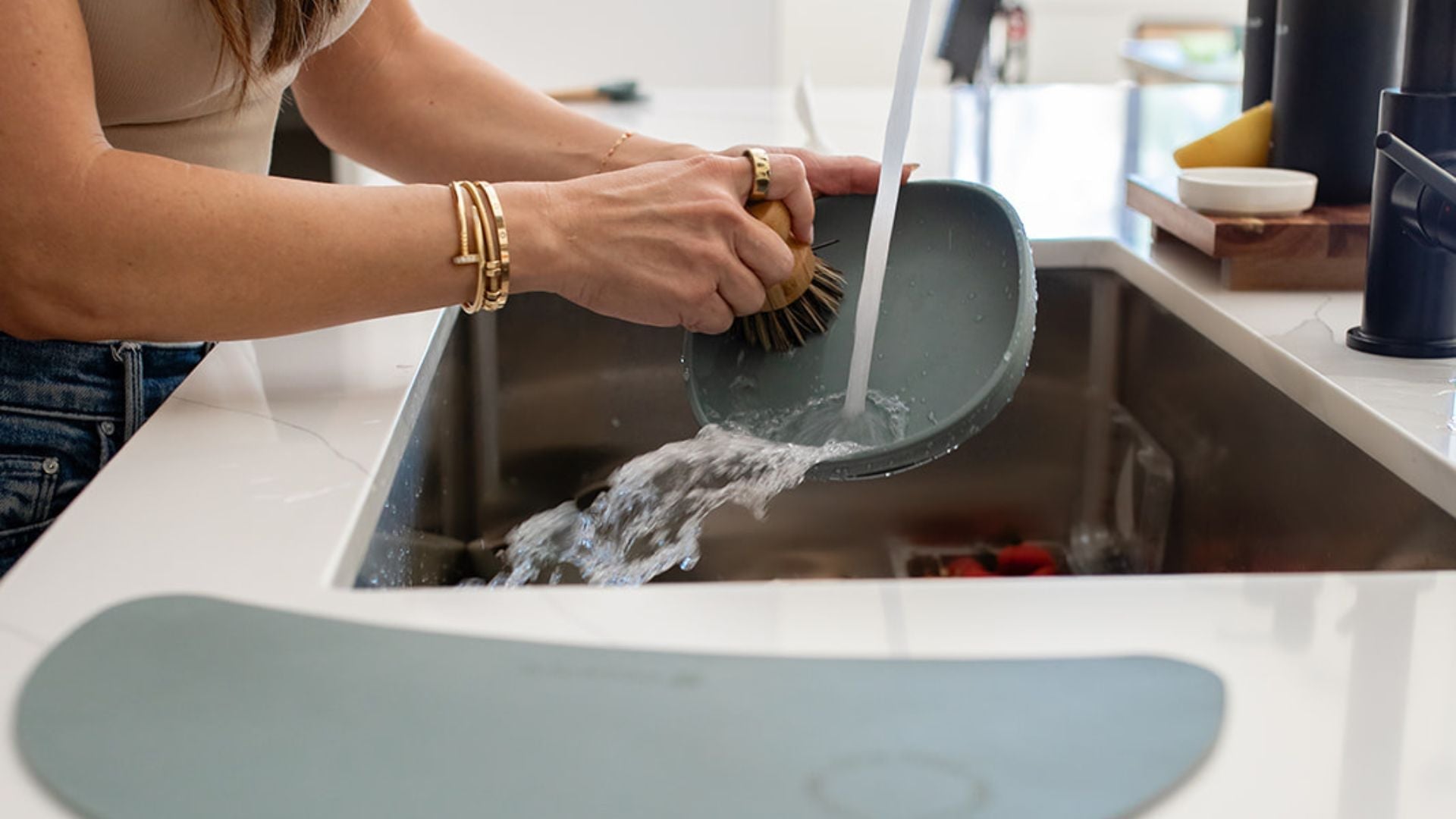
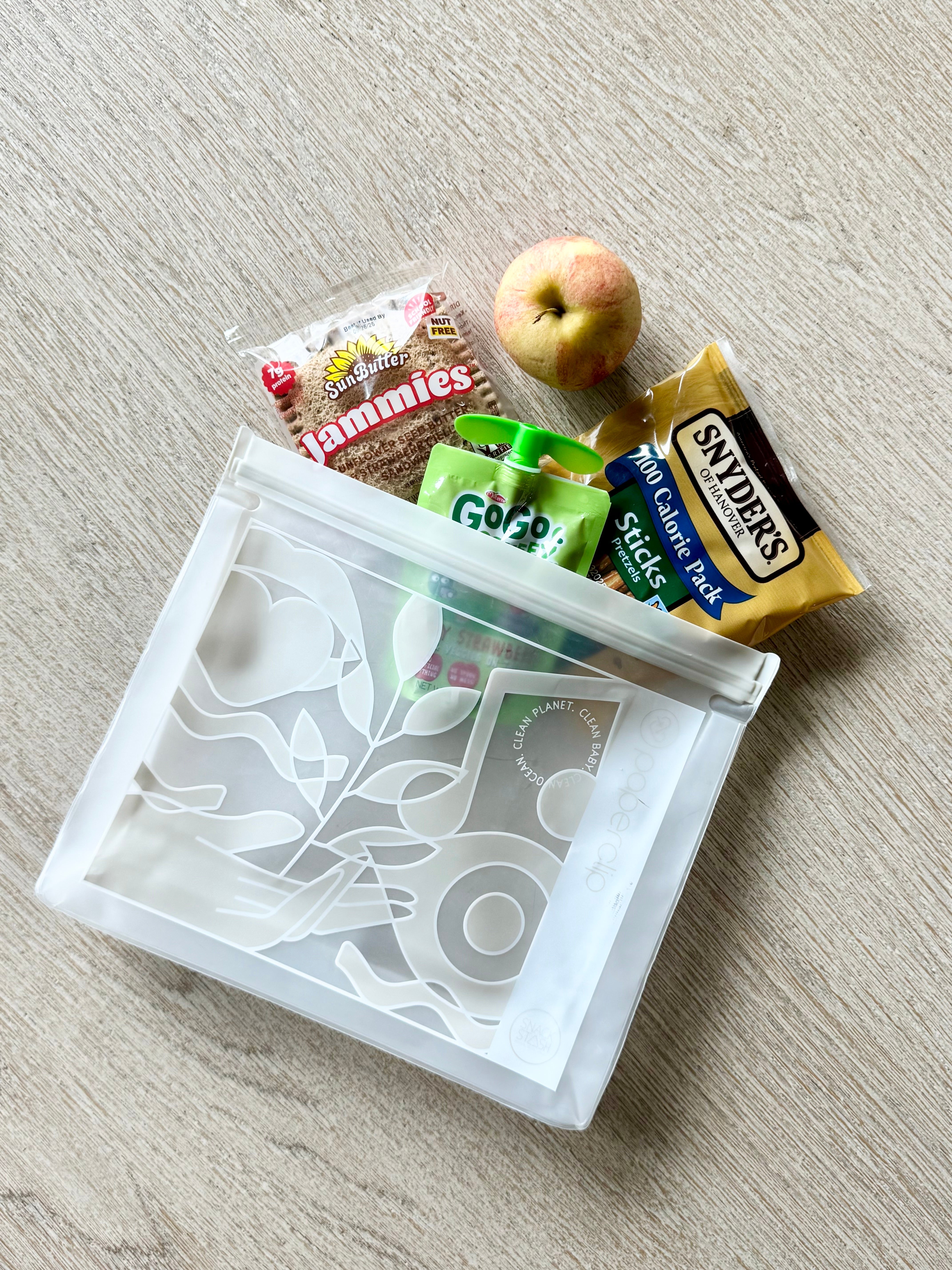
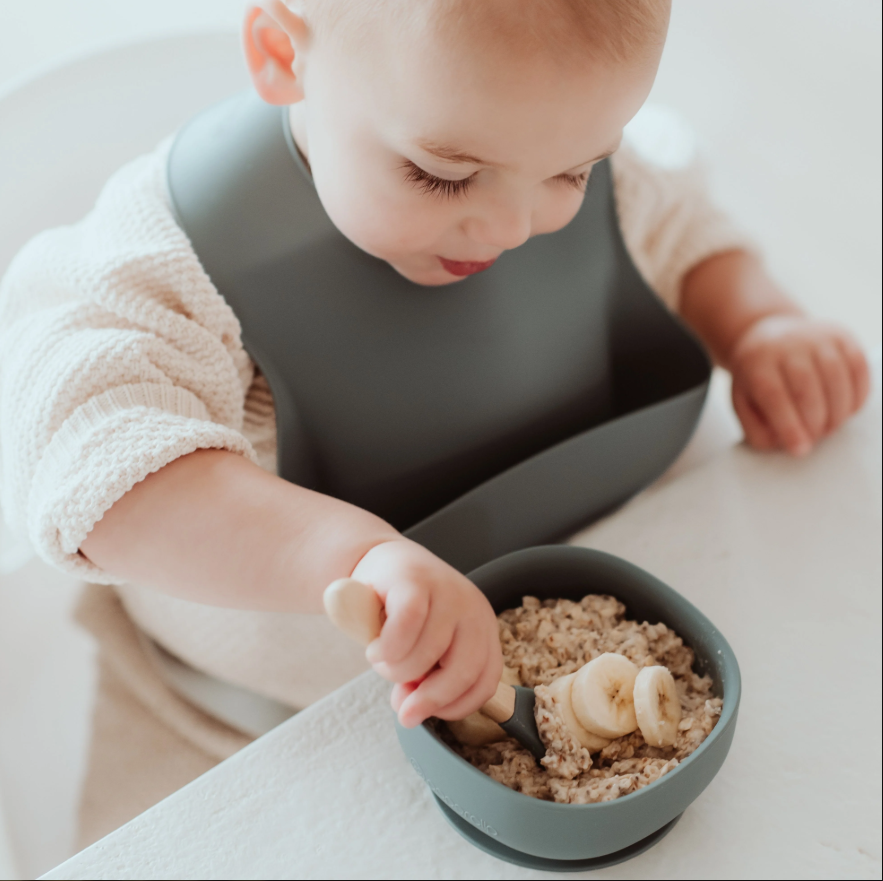
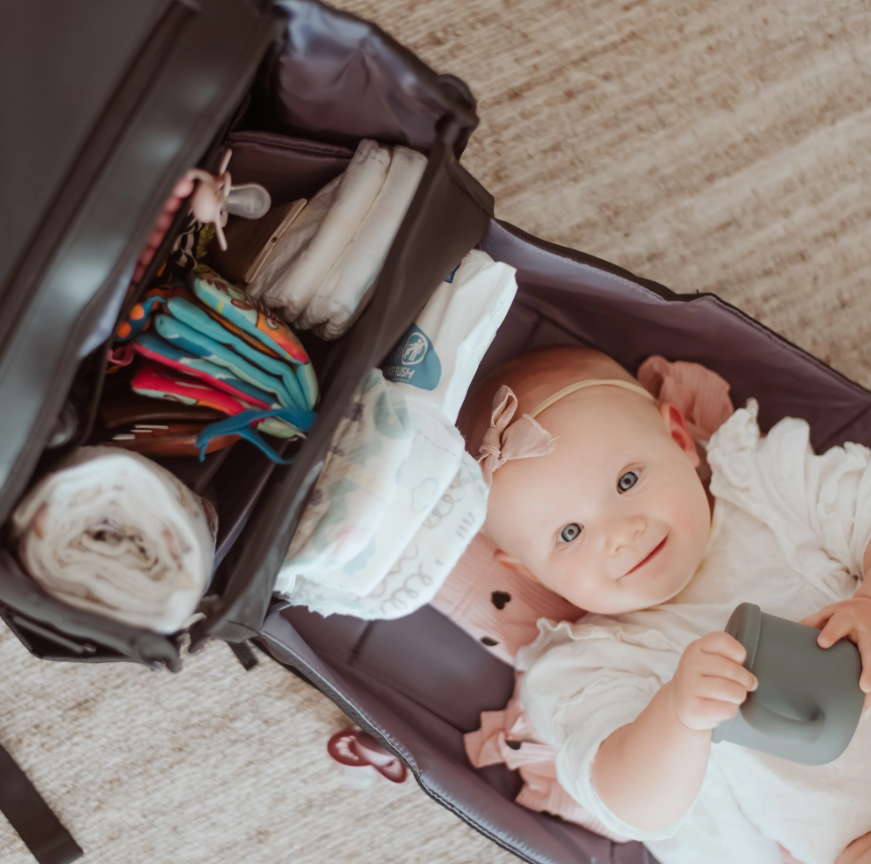
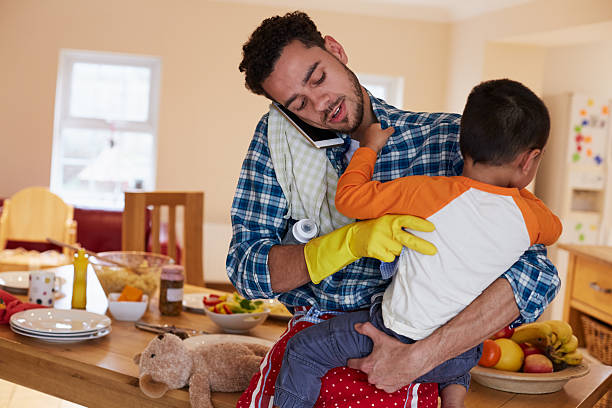
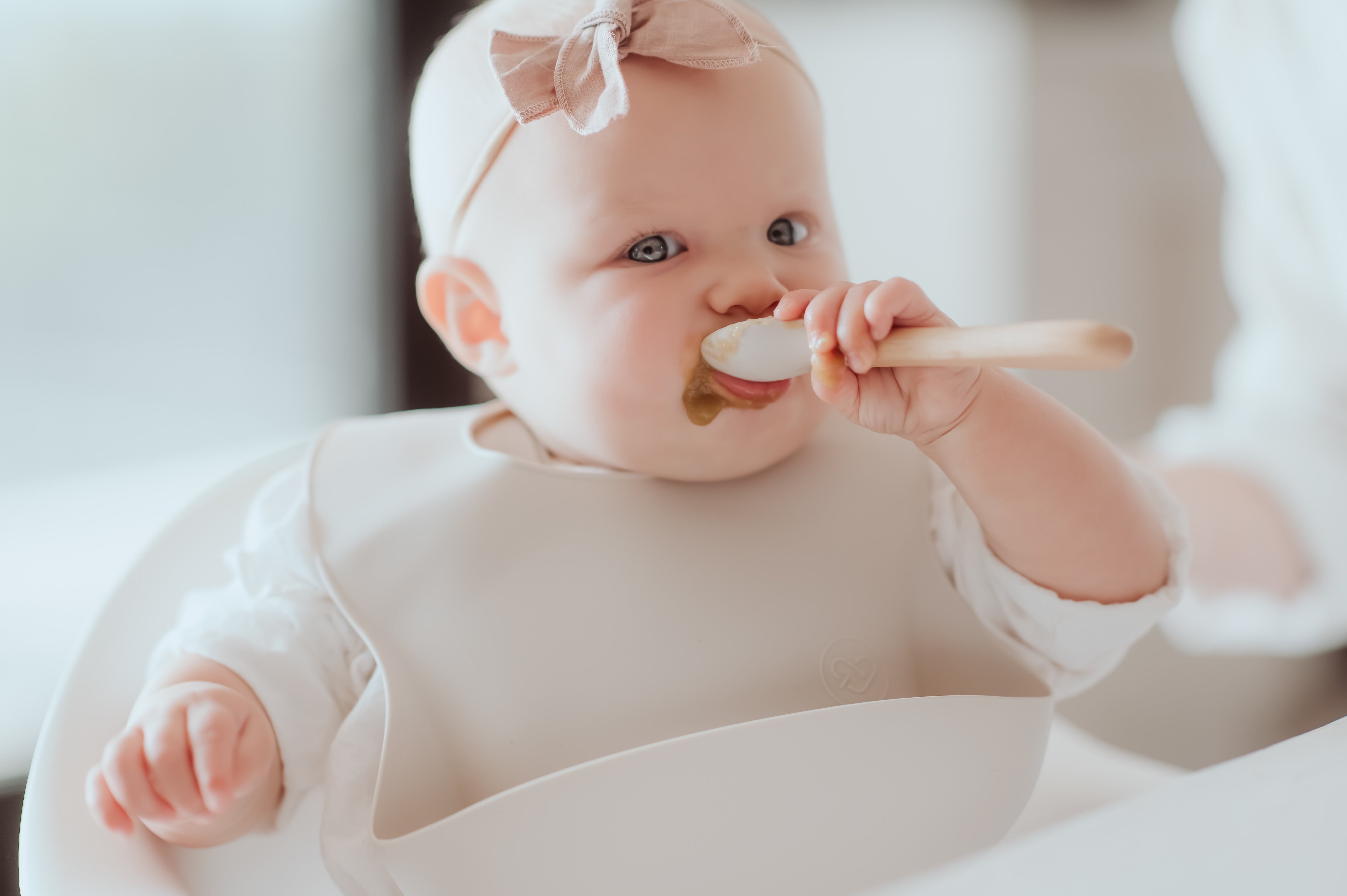
Comments
My baby is not peeing like before I’m stressing he’s using only 1 diaper a day is it normal?